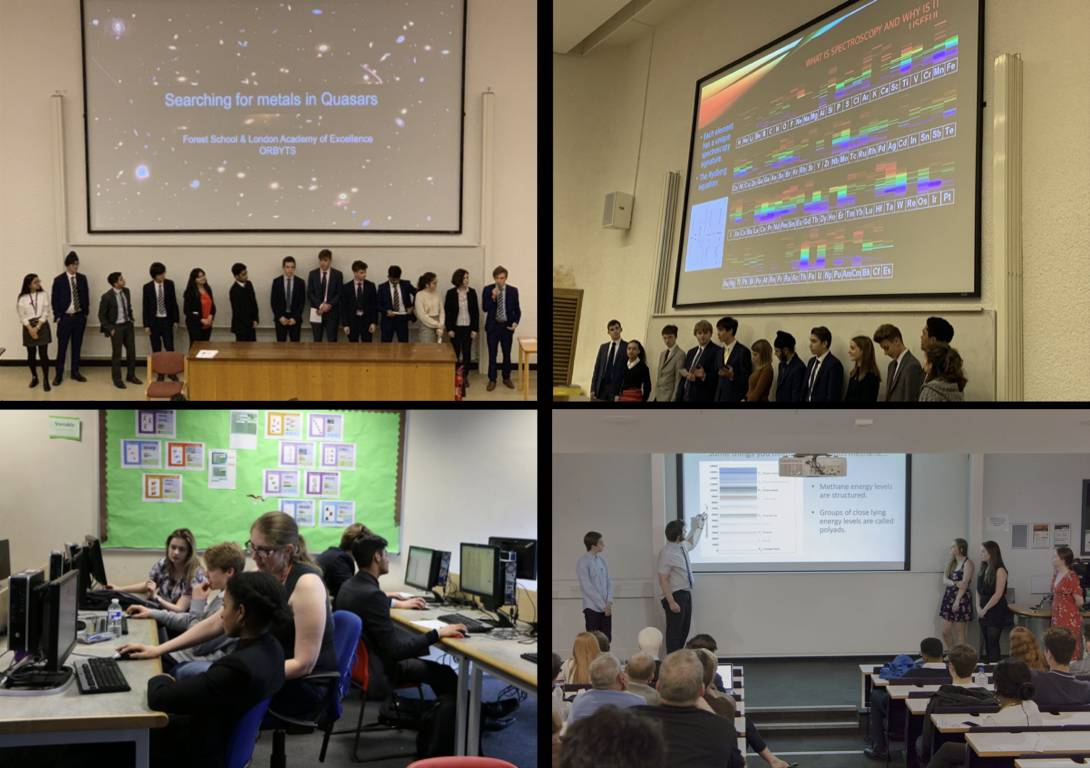ORBYTS is an education programme in which secondary school pupils work on original research projects under the tuition of PhD students, Post-Docs and other young scientists.
With a wider goal of engaging pupils from under-represented groups, ORBYTS has gathered momentum every year and now partners more than 25 schools with space scientists. Since 2018, these partnerships have produced 10+ publications in peer-reviewed scientific journals, with 100s of secondary school students authoring these papers. Many of the schools involved report dramatic (~100%) increases in uptake of STEM A-level subjects following the programme.
ORBYTS is a fantastic opportunity for PhD and post-doc researchers to lead a research project, inspire the next generation and improve their management skills. For secondary school pupils it offers the chance to engage directly with cutting-edge research and to challenge their misconceptions about who can do science and what science is.

To find out more about ORBYTS and how to get involved, click here or get in contact with William Dunn.
What a partner teacher says about ORBYTS:
“This project has surpassed anything I could have possibly imagined - not only have our students been consistently blown away by the science of other planets, it has helped them better understand the value of their own one. More than half of the students in the project are female... The confidence building I've seen them go through in the last few months has been amazing.
Most of them started the project very nervous, thinking there was no way they'd ever understand anything and doubting that there'd be anything they could possibly offer of value. The first time I heard one of these students cry out "hey wait I get this .. this is cool"... my heart skipped a beat. This was coming from a student who at the start of the project didn't know about the basic wave properties of light due to the combination of courses undertaken in previous schools and subject choices since joining ours. All but two students in the project speak English as a second language - their levels of scientific literacy and their scientific vocabularies have grown immeasurably due to the focused, ongoing Q+A aspect of the project. All of them have had unbelievable levels of motivation and commitment to the project.
As for how useful I've found the project - in a tough year with significant professional challenges to overcome, this has been a real "get me out of bed in the morning" kind of project. When X first explained the project to the students, I was whiteboarding out as he explained to help them see key words and help draw together threads. At the end of the session I stood back and said to myself "this is literally the coolest thing I’ve ever written on a whiteboard". The project has fed back down through the school with ORBYTS members giving presentations to lower year groups and it's even changed my teaching to my 13 year old students - all my magnetism stuff is now fed through the lens of the importance of our magnetic field and what the aurora on Earth tell us about the conditions necessary for life here. Multiple other staff have become involved and have had valuable subject knowledge gains and through the school publications the wider school community - parents etc have also become enthused and are talking with their children about the project even if they're not directly involved. ORBYTS is definitely one of the coolest things I've been exposed to in my 15 year career.- D. Fleming (Teacher at an ORBYTS partner school)
 Close
Close

